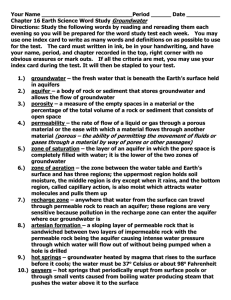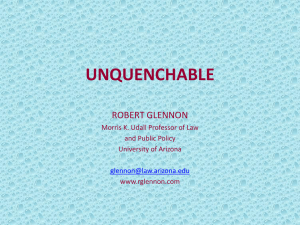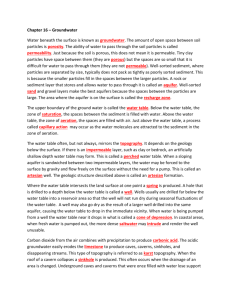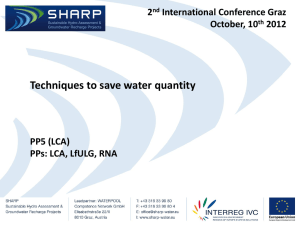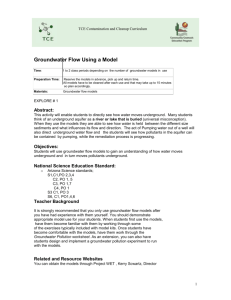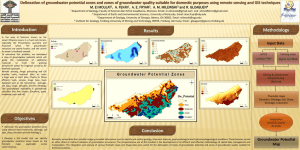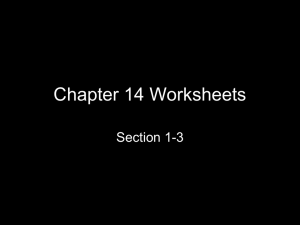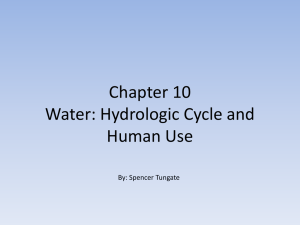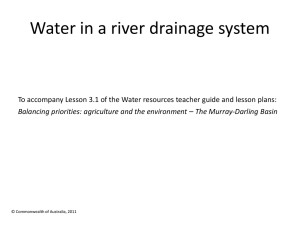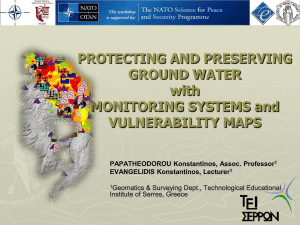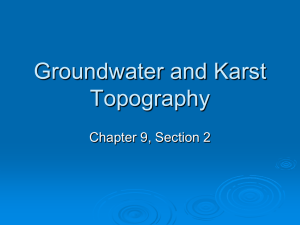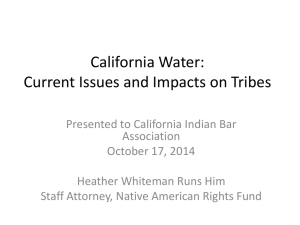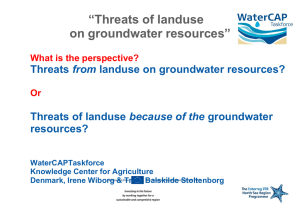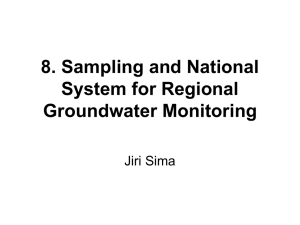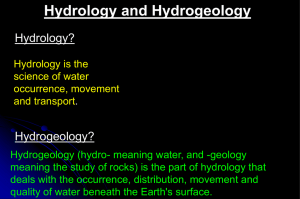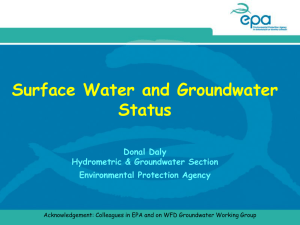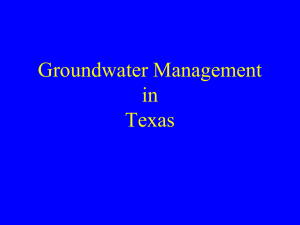CHAPTER 6.3 WATER BENEATH THE SURFACE
advertisement
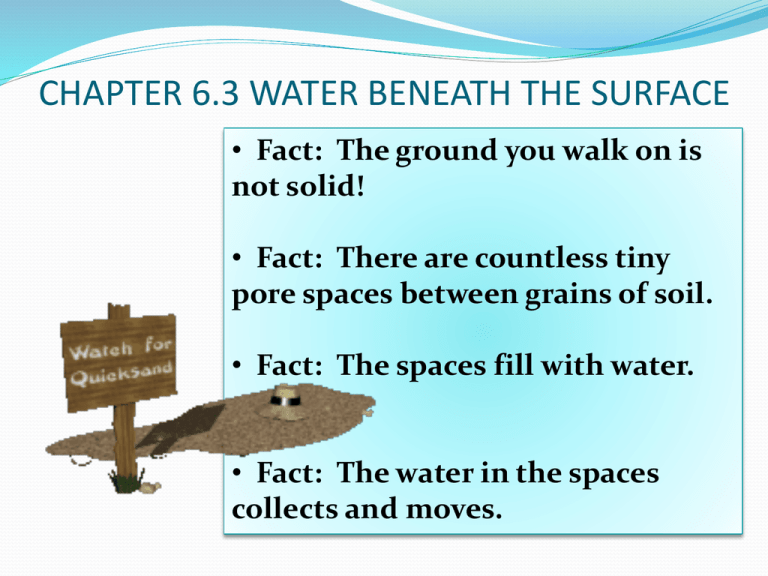
CHAPTER 6.3 WATER BENEATH THE SURFACE • Fact: The ground you walk on is not solid! • Fact: There are countless tiny pore spaces between grains of soil. • Fact: The spaces fill with water. • Fact: The water in the spaces collects and moves. Distribution and Movement of Water Underground When rain falls… …some of the water runs off, …some of the water evaporates, …and the rest soaks into the ground. How much water soaks into the ground depends on… …steepness of slopes, …natures of surface materials, …intensity of the rainfall …type and amount of vegetation. Distribution of Water A lot of the water in soil seeps down until it reaches the ZONE OF SATURATION. Zone of Saturation = area where water fills all open spaces in sediment and rock (GROUNDWATER) GROUNDWATER Water Table = upper limit of the zone of saturation Zone of Aeration = area where soil is not saturated with water. (Underground) Movement of Water Subsurface Material: • Porosity = the percentage of total volume of rock or sediment consisting of pore spaces. Can still block the movement of water underground. • Permeability = ability to release a fluid • Groundwater moves by twisting and turning through pores that are connected. Groundwater moves more slowly when pore spaces are smaller. Goes through too fast! Goes through too slow! Goes through just right. Aquafer = permeable rock that allows the movement of underground water. AQUAFER Aquatard = impermeable layers that prevent the movement of underground water. SPRINGS Spring = forms wherever groundwater intersects the ground surface. Hot Springs = 6oC to 9oC warmer than the air temperature around where the spring occurs. Geysers = intermittent hot spring or fountain in which a column of water shoots up with great force Flash: Hot Springs of Baniff Geysers = intermittent hot spring or fountain in which a column of water shoots up with great force 1. Pg 173 Fig 16: Groundwater enters underground caverns and fractures in hot igneous rock and is heated to almost boiling. 2. The hot water expands and some is forced out at the surface. This reduces the pressure and temperature of the remaining water. 3. The water flashes to steam which forces the water out and produces the geyser. 4. The now empty chamber begins to fill again and the cycle starts over. Flash: Geysers 3:52 WELLS Well = hole bored into the zone of saturation. Artesian Well = any formation in which groundwater rises on its own to the surface. Environmental Problems with Groundwater Renewable or Nonrenewable? • 65% of groundwater is used for crop irrigation • High plains have a severe groundwater depletion. • When groundwater is removed faster than it can be replenished ground may sink as water is removed. (See pg 175 Figure 18) India Groundwater Contamination Common sources of contamination: • sewage from leaking septic tank • farm waste • inadequate/broken sewers Pg 176 Figure 19 Extremely permeable aquifers allow water to flow to fast for it to be cleansed properly. Caverns Cavern = naturally formed underground chamber. Rainwater dissolves CO2 in the air creating carbonic acid. Carbonic acid reacts with calcite in limestone forming calcium bicarbonate. Rock is slowly eroded as the water moves through cavities and a cavern is formed. Caverns form in the Zone of Saturation, But Dripstone forms after the cavern is above the water table. • Streams cut their valleys deeper and deeper. • As the elevation of the stream drops so does the water table. • This leaves the cavern high and dry. Linville Caverns Marion, NC Travertine = calcium carbonate limestone that makes dripstone. Dripstone = deposits of calcium carbonate limestone made from the continuous dripping of calcium carbonate deposits. • Stalactite = icicle-like stone hanging from the ceiling of a cavern. • Stalagmite = conelike stone coming up from the floor of the cavern made from the drips off stalactites. Flash: Caverns Karst topography = landscape shaped by the dissolving power of groundwater. Guatamala City Venezuela Sinkhole = depression produced in a region where groundwater has removed soluble rock. In Soviet Russia, the ground moves you. Berezniki’s sinkhole began in 1986 and just grows worse with each passing year. The vast Qattara west of Cairo, Egypt is the largest natural sinkhole in the world, measuring 80km long by 120km wide.

